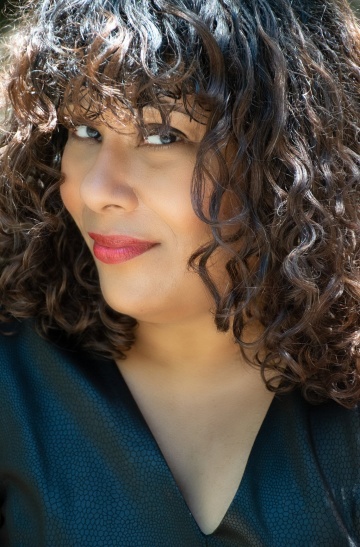Columbia College | Columbia University in the City of New York
“Living Your Best Life?” by Ivelisse Rodriguez ’97
I carry my mother’s credit card in the front pocket of the undignified rolly bag I use when I teach as an adjunct, in case I can’t afford to pay for my own gas. I used to show off my credit score like a diamond; now, I take an existential approach to all that. What is a credit score? Is it another social construct? This is not how an adult, much less a Columbia grad with a Ph.D., should be living. I haven’t been this poor since I was a grad student in 1998. But sometimes, you only have bad choices: stay at a job where you are profoundly unhappy or risk terrifying poverty, abject helplessness, having no standing in the world and, well, I could go on.
While my inner Oprah cheered me on to live my best life, I’m a committed realist. I love the adages “leap and the net will appear” and “fortune favors the brave.” But my non-Oprah side says, “eh, not always.” You can easily free-fall through the sky. Or the brave can get their asses kicked back to reality. This is why people stay on the “right” path — because life doesn’t always fall in line just because you want it to.
But by the age of 39, I questioned where doing the right thing had led me. What would happen if I stepped out of line? I had sacrificed enough.
When I was 13, I went to boarding school and promptly wanted to leave because, for the first time in my life, I felt like a “minority.” I say this having grown up a mere 45 minutes away in Holyoke, Mass. — and Holyoke is Puerto Rican. How Puerto Rican? This small city tucked in Western Massachusetts has the highest concentration of Puerto Ricans outside of Puerto Rico. That’s how Puerto Rican it is. But only when I spied classmates with American Express Gold cards did I realize how poor I was. Other than the money put into my account every term as part of my scholarship, I was on my own. I lost confidence in my intellect because some of my classmates had attended private schools all their lives, and it showed. To get me to go back for a second year, my mother and her boyfriend had to bribe me with a leather trench coat. Somehow that worked. But, seriously, how could someone turn down such a life-changing opportunity?
In the end, it was the best decision to make because it prepared me to go to Columbia, my first-choice school. During my last semester at the College, a friend committed suicide, which led to many nights of collective weeping and certainty that a pain like this never goes away. But even then, I forged ahead. I had zombified meetings with my professors about my grades, changed classes to pass/fail grading and wrote C-level English papers just to graduate on time, because I was already set to start my master’s in fine arts program in the fall. A few years after that, I went to school for a Ph.D., finished my coursework in a year and a half, was chagrined to take an extra half a year to study for my prelims and then wrapped up the whole thing in four years. I immediately got a pre-/post-doc, which led to my first tenure-track job, the goal of all academics. And then I was offered a second tenure-track job in New York City, and all was well in the world.
Until it wasn’t.
I was dogged by a sense of failure. I had adequately prepared for my “practical” life —being an academic. But after semesters where I was grateful if I could pee between classes, where I read approximately 400 essays and where I worked six days a week, I had spent significantly less time on the impractical life I had wanted — being a writer. And, well, you can surmise how tenuous that profession is. And growing up working-class, I appreciated feeling safe, I appreciated firm ground to stand on. But then I went and quit my job in August 2015 because I wanted to write a novel.
I leaped. And fortune did favor me — I had great part-time jobs, my novel started to have a shape, I woke up practically humming. I was the personification of that emoji that looks like it is squeeing.
Fast forward to 2018 and clutching my mother’s credit card for safety. But in the forthcoming years, when I repeat the story of 2018, I will tell this part jokingly because this isn’t really the defining aspect of my year. Instead, my greatest ambition was achieved — my book was published. Not my novel, but the short story collection I had given up on. And not only was it published, but it was noted as one of the must-read books of the year by Cosmopolitan, The Root, Electric Literature, The Rumpus and many more publications. I toured for my book, signed copies with a gold Sharpie and a flourish, met “fans,” and received invitations for readings, conferences and interviews. In other words, I was the book belle of the ball, and it was amazzzzzziiinnnggg. It was really more than I dared to secretly whisper to myself late at night.
So my story of living your best life is not that hardship eludes you or that living your best life is only something that charlatans peddle. It is not a binary. Rather, it is the jumbled, imbalanced existence of humbling and regressive moments, right alongside extraordinary moments that illuminate your life in the present and will propel you into fantastic futures.


